-
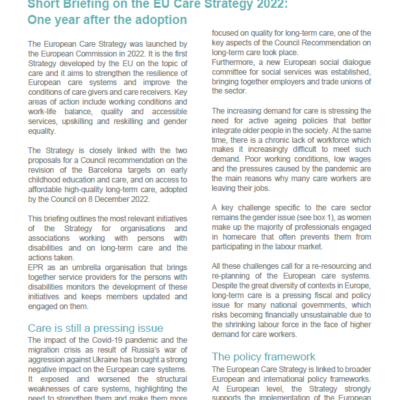
Short Briefing on the EU Care Strategy 2022: One year after the adoption
The European Care Strategy was launched by the European Commission in 2022. It is the first Strategy developed by the EU on the topic of care and it aims to strengthen the resilience of European care systems and improve the conditions of care givers and care receivers. Key areas of action include working conditions and […]
Read more > -
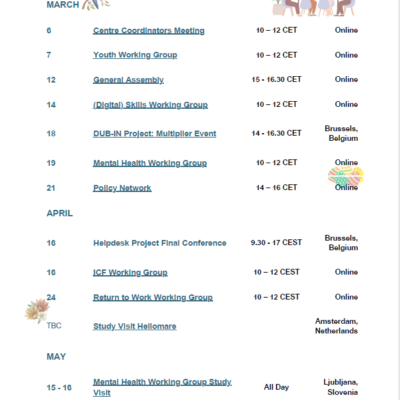
EPR Calendar 2024
EPR Calendar 2024: meetings and events. You can consult our calendar here, which is updated as soon as dates are confirmed.
Read more > -
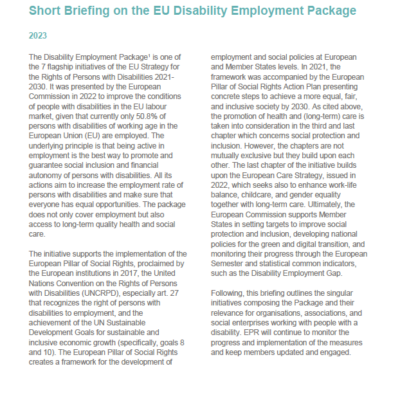
Short Briefing on the EU Disability Employment Package
The Disability Employment Package is one of the 7 flagship initiatives of the EU Strategy for the Rights of Persons with Disabilities 2021-2030. It was presented by the European Commission in 2022 to improve the conditions of people with disabilities in the EU labour market, given that currently only 50.8% of persons with disabilities of […]
Read more > -
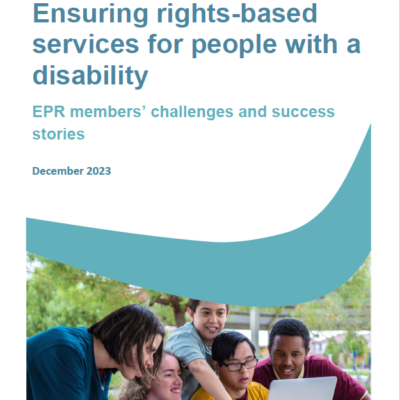
EPR Study “Ensuring rights-based services for people with a disability. EPR members’ challenges and success stories”
Through the collection of good practices from EPR’s members and their analysis, the study aims to provide EPR members and other stakeholders with interesting and inspiring projects, methodologies, and services from which to learn from. This year, 2023, the study is focusing on ensuring rights-based services for people with a disability, challenges and success stories […]
Read more > -
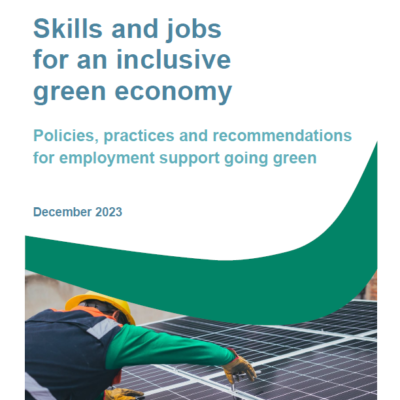
Skills and jobs for an inclusive green economy
The EPR Study “Skills and jobs for an inclusive green economy” explains what is meant with green economy and green jobs, and what are the skills needed to find work. Described there are also services offered by EPR member organisations that help people with a disability to get training and support for a green job. […]
Read more > -
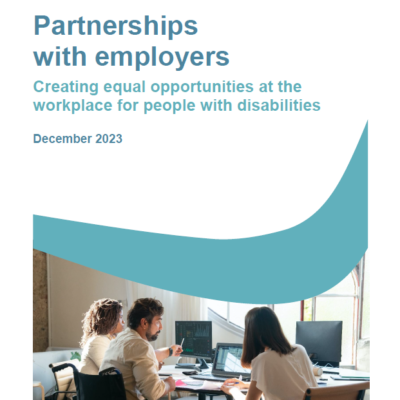
EPR Toolkit “Partnerships with employers: Creating equal opportunities at the workplace for people with disabilities”
The EPR Toolkit “Partnerships with employers Creating equal opportunities at the workplace for people with disabilities” presents ideas and suggestions for organisations that help people with a disability in finding a job. This toolkit is useful for organisations that offer services to people with disabilities. In the document, there are suggestions on how to start […]
Read more > -
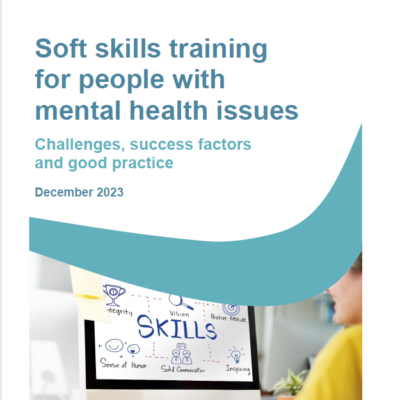
Soft skills training for people with mental health issues
The EPR Study “Soft skills training for people with mental health issues” explains what is intended with soft skills and why it is important to train students and workers on soft skills. Being proficient in soft skills is especially difficult for people with disabilities and people with mental health issues. The idea of this document […]
Read more > -
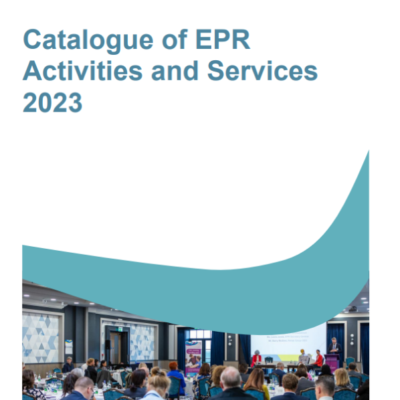
EPR Catalogue of Activities and Services 2023
You can consult our Catalogue of Activities and Services here. It outlines our working groups, taskforces, conferences, seminars and training workshops, as well as planned research, papers and support to members.
Read more > -
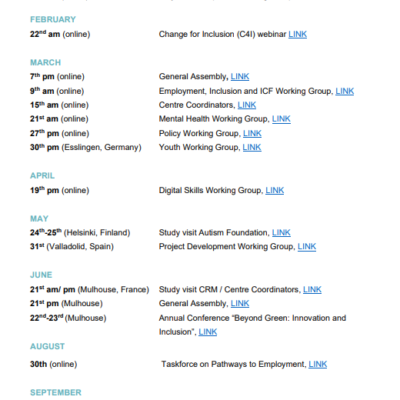
Calendar of EPR events 2023
You can consult our calendar of events here, which is updated as soon as dates are confirmed.
Read more > -
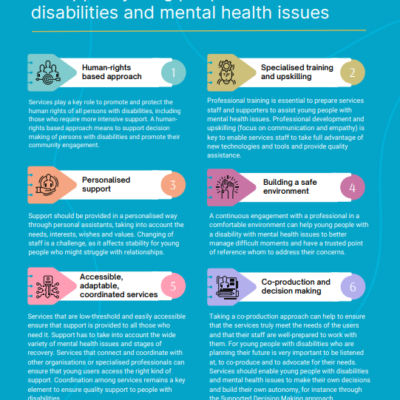
6 success factors to support young people with disabilities and mental health issues
Consult the document here.
Read more >



 This website received support from the EPR framework partnership agreement with the European Commission, DG Employment, Social Affairs and Inclusion for 2018-2022 from the EU Programme for Employment and Social Innovation (EaSI). For further information please consult:
This website received support from the EPR framework partnership agreement with the European Commission, DG Employment, Social Affairs and Inclusion for 2018-2022 from the EU Programme for Employment and Social Innovation (EaSI). For further information please consult: